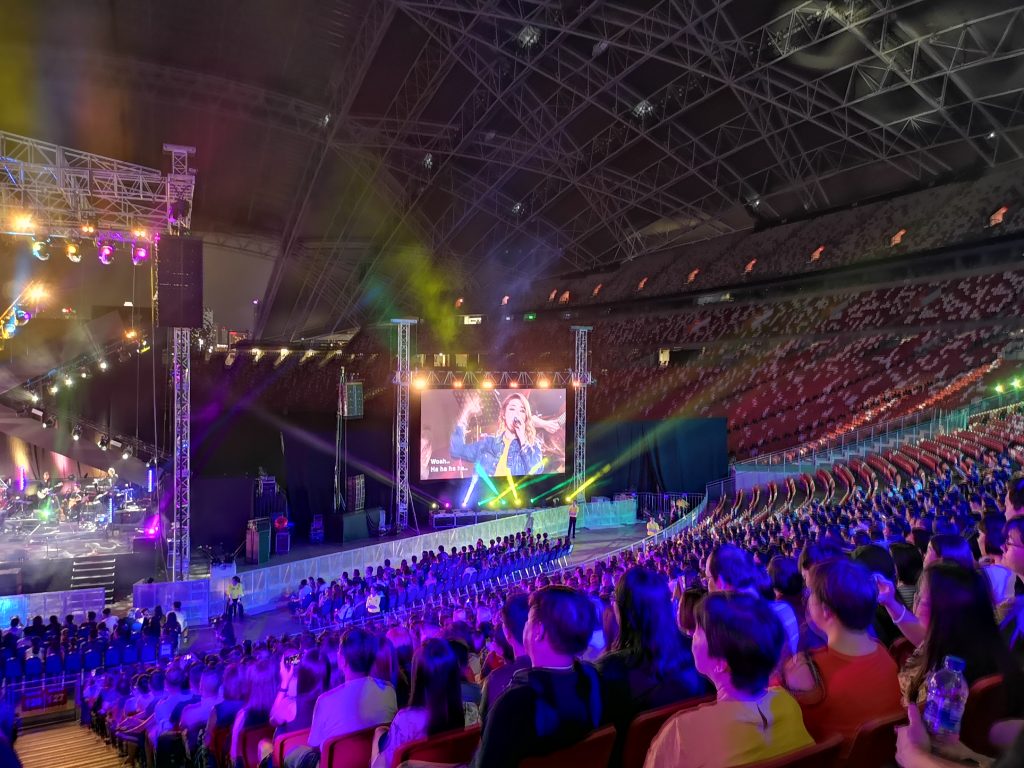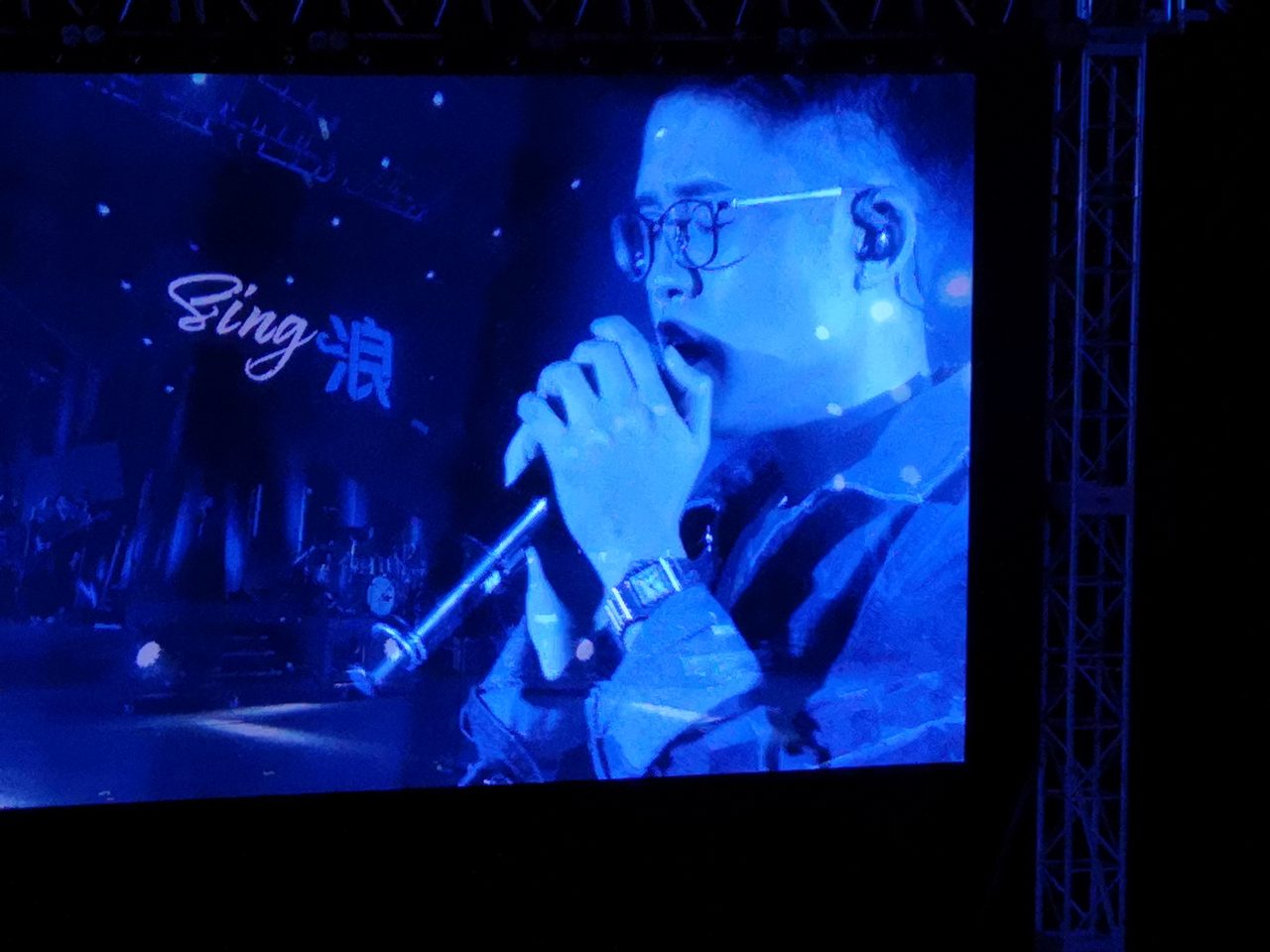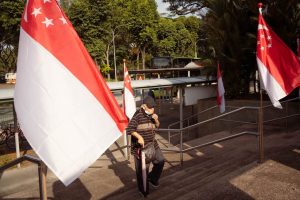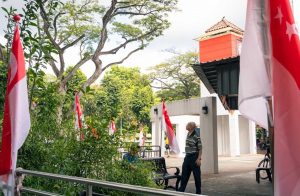Its multi-ethnic slate of musicians meant to reflect the centre’s desire to promote a unique brand of ethnicity and cultural diversity—in hopes to “kickstart everyone’s journey in discovering more about Singapore’s distinctive culture and inspire them to appreciate the strong connections that bind us,” said SCCC’s CEO, Low Sze Wee.
At one point, during an on-stage interview, Pornsak (one of the emcees) posed a question to Gentle Bones (Joel Tan) in Mandarin, only to raise eyebrows when Tan quizzically responded in slightly accented English. Shortly after, I heard a mature female voice, from the seats behind me, lamenting in Mandarin that an ethnic Chinese millennial was unable to converse in his own native tongue. It seemed that the audience, seemingly typical of the older Chinese demographic, saw it fit to ‘shame’ or devalue someone based on the competency of their mother tongue.
Later, in another instance, a supposedly mandarin pop artist struggled unnervingly to find the words to express herself coherently. Unlike Gentle Bones, this budding artist attempted to, albeit rather incoherently, string a grammatically correct Chinese sentence in response to Pornsak.
In that moment, I found myself empathising with her despite her inability to elucidate in an articulate manner in response to the emcee’s barrage of questions and showbiz gimmicks.
These two different musicians reflect two examples of Chinese Singaporeans: one who generally speaks ‘proper’ English (consistent grammar, complete sentences, etc) without acknowledging a lack of proper Mandarin proficiency, and the one who speaks Mandarin, but is less-than-fluent in it.

No surprise then that this has led to the emergence of a largely English-speaking population, with Mandarin exemplified as an ‘identity badge’ of one’s Chinese-ness.
With respect to the essence and spirit of local artists, is it then reasonable that not all ethnically Chinese Singaporean musicians are fluent in their mother tongue?

Does being ethnic Chinese mean you’re Chinese?
Does speaking Mandarin make you Chinese?
Does studying at a historically Chinese (SAP) school make you more Chinese?
Does not being able to speak good Mandarin make you less of a Chinese?
Does being fluent in English rather than Mandarin make you less of an ethnic Chinese?
By state-defined margins, Chinese-ness in Singapore has taken on a rather sterile design, one encapsulated by written and spoken forms of Mandarin whilst ignoring vernacular elements drawn from the native creole of Singlish or influences from dialects like Hokkien, Teochew, Cantonese, etc.
Chinese identity should be more encompassing—beyond the stereotypical mould of language mastery—to include the nuances, styles and niceties that shape the holistic brand of a Singaporean ‘Chinese-ness’.
Language can be a unifying and resonant force that bonds people, but the obstinate belief in language competency-linked identity results in an otherwise senseless rhetoric of ‘Chinese-ness’.

Upon drafting this, a reviewer suggested that I address a related question: when we think of Chinese identity in the local context, it is one often narrated by Mandarin, instead of the more indigenous forms of lingua franca, Chinese dialects. Singapore, as a city-state with a demographically Chinese population, has its historical roots inherited from southern China where dialects (e.g. Hokkien and Cantonese) are more frequently used than Mandarin. Should these dialects shape our Chinese identity more so than the Beijing dialect, which came to underpin the official Chinese language?
On this note, Chinese identity remains a greatly contested issue.
We should re-define what constitutes our characteristics of being Chinese, and perhaps even broaden it to include what it means to be ‘Singaporean’.
Should language competency be the only yardstick of our Singaporean identity?






